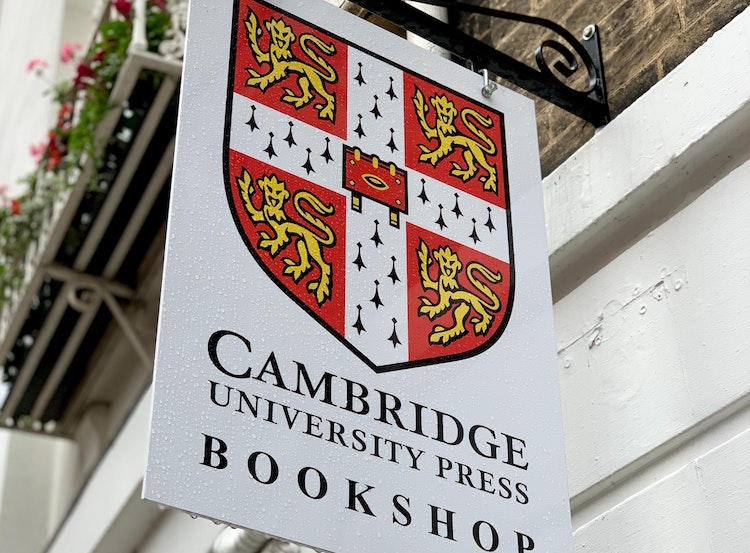 Are you on the hunt for Oxbridge application tips?
Are you on the hunt for Oxbridge application tips?
This week, I attended a webinar for parents of students hoping to apply to Oxbridge (Oxford or Cambridge). The webinar was hosted by the admissions directors at Sidney College, Cambridge, who offered an insight into the Oxbridge application process.
Applying to Oxford or Cambridge does have some weird quirks. For example, if you apply to Oxbridge, you need to apply three whole months earlier. This is probably why I never even considered applying as a teenager!
You need to complete additional assessments, some of which you need to register for and sit in an exam hall. You will need to provide some extra information on your UCAS form. Also – Oxford and Cambridge are collegiate universities, so students apply to a college, not the university. It’s a lot to get your head around.
Below, I am sharing some of the best Oxbridge application tips that I heard at the session. They cover everything from GCSE grades and A-Level choices to personal statements, interviews and choosing the right college. If you have a teen and you’re looking for advice on your Oxford or Cambridge application, then read on:
21 Oxbridge Application Tips from an Admissions Director
When should my teen start thinking about Oxbridge admission?
It’s never too early to prepare for university. At pre-16, think about what activities, volunteering or jobs you can do to show your interest in a particular career or area of study. Volunteering at a nursing home could support a later medical application, while contributing book reviews to a magazine shows an interest in literature.
As a parent, how do I keep informed?
Sign up for the UCAS newsletter to get reminders and advice. There’s also a parent version so you can ensure no dates are missed. This year applications that include Oxford or Cambridge must be submitted by Oct 15. Then interviews start in November and decisions are made in January.
What is the Cambridge University Foundation Year?
Do any of the following apply to you?
- suffered severe educational disruption (not Covid)
- attend a school that is poorly rated by Ofsted (special measures or requires improvement)
- live in a household with income below £25,000
- live in a family that receives universal credit
If so, you could apply for the brand-new foundation year at Cambridge. This is for arts/social science students who would otherwise struggle to meet the application requirements at Cambridge.
The Cambridge Foundation Year is a 12-month programme for up to 50 students. These students will complete a year of foundation study, that prepares them for studying at undergraduate level. Students will live in a college, attend lectures and supervisions and do ALL the things regular students do. Best of all, the course is completely supported. This means students will receive free tuition and a scholarship to cover rent and a portion of living expenses. You’ll need the equivalent of 3 B’s to apply. If you complete the course, you are guaranteed a place on a Cambridge undergraduate course without needing to apply.
How important are my GCSE grades when applying to Cambridge or Oxford?
One of the best Oxbridge application tips is don’t worry too much about GCSE grades. The majority of successful applicants do not have all grade 9s at GCSE.
Instead, admissions teams will look at the subject you’re applying for, and whether you have strong GCSEs in that area. They will also look at your progression. This means if you got mostly 5s and 6s at GCSE but you’re predicted As and A*s at A-Level, you’re on a strong progression curve, and your GCSE results will be less important.
It’s not worth resitting GCSEs unless say, you got a 4 or 5 in maths, and want to apply to do maths.

Are BTECS a good idea if I want to go to Oxford or Cambridge?
One of my favourite Oxbridge application tips came from a Cambridge University Admissions director: “Don’t fall into the BTEC trap.”
There are very few subjects where BTECs are considered acceptable preparation for study at a top university. Engineering is the main example, but even this is considered “spotty”. If you are serious about attending a top university, avoid BTEC courses.
What A-Levels should I take for Medicine at Oxbridge?
For medicine applicants the guidance is pretty clear. More than 95% of students applying for medicine at Cambridge study three or more science/maths A-Levels – and 23% will gain a place. Of applicants studying two science/maths subjects, only 3% gained a place. The advice is to take Chemistry plus two of biology, physics or maths.
Does an EPQ help you get into Oxford or Cambridge?
An EPQ is never a bad idea. They help students do independent research, write longer course work and develop skills that will be useful when they get to university. We do like to see an EPQ but it is worth noting it will never be part of the offer we make to a student. It’s never involved in that part of the process, because we are aware that not all students have access to an EPQ. It’s worth looking at your workload and deciding whether an EPQ will be manageable, or whether they need an additional A-Level or AS-Level, such as further maths.
We are always interested in co-curriculars, particularly those that demonstrate an interest in your chosen field of study. Any practical experience you can gain is helpful in areas like fields like medicine and vet science.
If I study maths A-Level, do I need further maths?
For maths or economics applicants at Cambridge, A-Level maths is required and further maths is “strongly desired” – essentially, if it is available at your college, you should do it and we would expect you to do so.
If further maths isn’t available, or you were unaware of the importance of this subject until too late, then the advice is to do an AS Level in further maths. If that isn’t available, then it is important to do as much additional pure maths and decision maths as possible, perhaps by using online resources covering advanced maths. Doing well in maths competitions is seen as a “positive aspect of an application”.
Are all courses with the same name, the same course?
The most important of these Oxbridge application tips is to research your course and find the right course.
The same course could be totally different at different unis. Economics at Cambridge is very maths-based, but at Nottingham there is more social science. Economics students looking for a more social/political course might want to apply for Land Economy, which combines law, economics and environment.
Do I need to provide extra information on my UCAS form if I apply for Oxford or Cambridge?
Cambridge asks for additional information on the UCAS application form (Oxford doesn’t do this). This is designed to help international students who may sit different styles of exams. It can also be a place to talk about any challenges you might have faced. For example if you had educational disruption (outside of the pandemic) or have any learning disabilities, these should be mentioned here. Although Cambridge doesn’t make “contextual offers” it does consider all information as part of the whole application.
You can also submit a Cambridge specific personal statement, but this is totally optional and only worth doing if you have something very specific to add.

How do I know which college to apply for at Oxford or Cambridge?
Firstly, you do not have to apply to a college if you can’t choose. It’s possible to submit an ‘open’ application. If you do this, then a computer algorithm will randomly assign your application to a suitable college. Your application will be treated exactly the same as someone who applied directly to that college. The people looking at your application will not know if you applied to the college, or were assigned to it.
If you want to apply to a college, the best bet is to visit and see where you imagine yourself living. If that’s not possible, most people choose colleges based on location (city centre, further out), facilities (swimming pool, theatre) and architecture. Remember not all colleges will offer all degrees. Also, the swimming pool is outdoors, and it is not heated.
There are far more similarities between colleges than differences, try not to get too hung up on it. If you don’t get into a requested college (or don’t express a preference), you go into the winter pool and might get an offer from any college.
Which colleges at Cambridge are easiest to get into?
The idea that some colleges are easier or harder to get into is a myth.
For starters, the number of applications to each college shifts each year. Basically, lots of people apply to college A and their admission rate looks lower. This data is published online. You can guarantee everyone is looking at those stats. The next year, far fewer people apply to that college. Their admission rate looks really high. And so on.
Actually, regardless of which college you apply to, your chances of admission to Cambridge or Oxford will be the same. If one college receives more applications, they will be redistributed to less over-subscribed colleges. At each college, there is a moderation process to ensure the calibre of candidates who receive offers is the same, and following this there is another moderation where offers made by all colleges are compared to ensure the quality of candidate is the same. At this stage, offers can be redistributed to ensure that all colleges are making the right number of offers.
Do you have any Oxbridge application tips for personal statements?
Your personal statement should focus more on you than the university. The admissions department wants to understand how you have developed as a student, and how your interest in your subject/career has been a part of that journey.
Tell us a story about why you want to study psychology and what you’ll get out of it. That’s more important than trying to show why you’re right for us. Look outside of the school curriculum for things like wider reading, work experience, volunteering, co-curriculars. For each thing, tell us what it gave you, and both the positives and one possible negative of that experience.
Oxbridge application tips for PPE
If you’re applying for a multi-disciplinary subject like PPE, it’s fine for a personal statement to be very philosophy-focused, if that’s what you’re applying for elsewhere. We will read it knowing you’ll be applying for single subject degrees elsewhere.

How many applicants does Cambridge invite to interview?
If you’re considered to have a reasonable chance of admission, Cambridge will invite you to an interview. The figure is surprisingly high – 75-80% of applicants will be invited for interview. Of these students, around 25% will receive an offer. At Oxford, the interview rate is lower – usually around 40-50%.
You’ll usually get two week’s notice of the interview. They take place in the first two weeks of December. For the last two years they’ve been online, but the university transitioned back to live interviews in 2022.
How should I prepare for an interview at Oxford or Cambridge?
The purpose of an interview is to find out how far you have explored your subject beyond what is required by the school curriculum.
My best Oxbridge application tips for students attending an interview are: first, if you’re applying for maths, do a lot of maths. Second, whatever you’re applying for, get very comfortable talking about it.
The best way to prepare for an interview is practice talking about your subject a lot, so you can talk naturally in an interview. If you’re applying for maths, do lots of advanced maths problems, but ALSO practice talking to an imaginary person at the same time, about how and why you are doing each step of the problem.
For English, practice looking at new poems or stories for 20 minutes and then talking about them. Talk to friends, teachers, the pet, a mirror. It doesn’t matter. Just get really comfortable talking. (side note: university summer schools give students a chance to boost their learning and include practice interviews with university staff)
What pre-interview assessment do I need to take?
In some subjects you will need to take a pre-interview assessment before your interview, and you will need to register via your school/college before October 15 to take the assessment in late November. This is a 90-minute paper that you take in school (or at an open assessment centre) in exam conditions. It will be used as extra evidence to help the university decide whether to invite you for interview.
For English, prospective Oxbridge students must take the ELAT assessment which requires you to choose 2 passages from six, and write an essay comparing them. The university might also ask arts/humanities/social science applicants to submit several pieces of coursework or homework as more evidence of your ability. This will be done through your school or college.
Some subjects have assessments that happen later, and some have no assessment – one of the most important Oxbridge application tips to remember is make sure you know which ones you need to do, when. The information is available on the Oxford and Cambridge websites.
What happens after my Oxbridge interview?
Followed all our Oxbridge application tips? If you get an interview at Oxford or Cambridge, you will find out the decision in January. You might receive an offer from your chosen college, from a pool college, or not be offered a place. We hope the process is positive and gives you some academic engagement even if you don’t get in. Remember that the majority of people who apply to Oxford and Cambridge sadly, won’t receive an offer.
The university is more than happy to provide feedback about your application that might support a future application. You will receive feedback on your interview but also your whole application.
So there you have it. 21 Oxbridge application tips from a director of admissions at Cambridge University to help your teen with Oxbridge applications. My own teen still hasn’t decided where to apply just yet – there’s lots more research to do. But I hope this advice helped and thanks so much to Sidney College for providing this advice. Feel free to share questions or your own Oxbridge application tips in the comments 🙂




